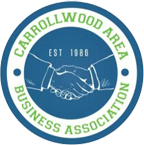Important Evidence to Collect After a Slip and Fall Accident

If you have fallen and suffered injury on someone else’s property, you may be able to file a claim against them to recover compensation for your losses. To prove your case, you will have to present strong evidence showing that the property owner was negligent and that you suffered injury as a result. It is not always easy to know the most important types of evidence to use in a slip and fall case. Below, our Tampa slip and fall attorney outlines the evidence that can prove your claim so you obtain full compensation.
The Role of Negligence in Slip and Fall Cases
Before understanding the important evidence to collect after a slip and fall accident, it is important to know what you will have to prove when filing your claim. To prove your slip and fall case, you must show the following elements:
- Duty: You must establish that the property owner had a duty of care to keep you safe while on their premises. Different types of visitors are owed a greater duty of care. For example, business owners owe a greater duty of care to customers than social hosts owe to their guests.
- Breach of duty: You must also prove the property owner breached their duty of care. For example, if staff members in a grocery store failed to clean up a spill they had been told about, they can be considered negligent as their failure to act would constitute a breach of duty.
- Causation: You must establish the direct link between the act of negligence and your injuries.
- Damages: Slip and fall claims are meant to compensate accident victims for their injuries and other losses. If you did not sustain any losses, there is nothing to compensate for and as such, no slip and fall claim.
Important Evidence in Slip and Fall Claims
Strong evidence is required when proving the above elements of any slip and fall case. The most important types of evidence in these cases are as follows:
- Photographs and video footage of the accident scene
- Maintenance records for the property where the accident happened
- Previous complaints from employees or customers
- Eyewitness testimony, particularly when eyewitnesses can describe how the accident occurred
- Medical records that prove the nature and extent of the injuries
- Pay stubs and other employment records that establish the amount of wages or salary lost
- Pain journal that can describe the level of pain you have been feeling and how your injuries have impacted your life
- Expert testimony regarding your ability to return to work, the severity of your injuries, and whether safety or building codes were violated
Our Slip and Fall Attorney in Tampa Can Prove Your Case
At Moore Law, our Tampa slip and fall attorney can advise on the important evidence in your case and help you collect it so you obtain the maximum settlement you are entitled to. Contact us to schedule a consultation and to obtain the sound legal advice you need.
Source:
law.cornell.edu/wex/negligence







